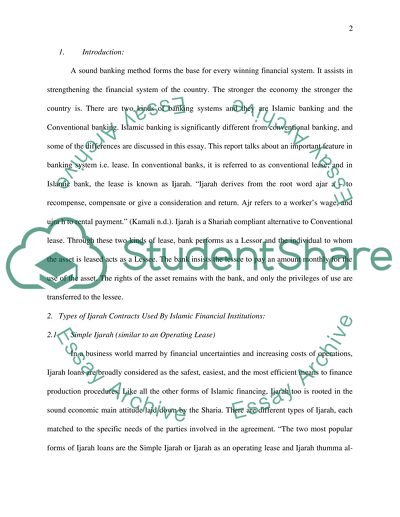Cite this document
(“Ijarah Contracts Used By Islamic Financial Institutions Essay”, n.d.)
Retrieved from https://studentshare.org/finance-accounting/1398280-islamic-accounting
Retrieved from https://studentshare.org/finance-accounting/1398280-islamic-accounting
(Ijarah Contracts Used By Islamic Financial Institutions Essay)
https://studentshare.org/finance-accounting/1398280-islamic-accounting.
https://studentshare.org/finance-accounting/1398280-islamic-accounting.
“Ijarah Contracts Used By Islamic Financial Institutions Essay”, n.d. https://studentshare.org/finance-accounting/1398280-islamic-accounting.


